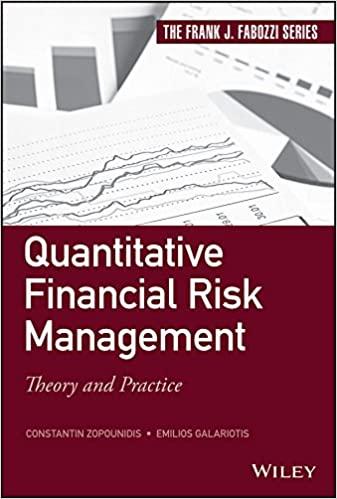Question
One of the most important implications from the efficient market hypothesis is if the market is efficient, its hard for an average investor to beat
One of the most important implications from the efficient market hypothesis is if the market is efficient, its hard for an average investor to beat the market. Even Warrant Buffet has had a hard time outperforming S&P 500 index in recent years. His advice to the trustee for his wife was to put 10% of the cash in short-term government bonds and 90% in a very low-cost S&P 500 index fund. Most actively-managed funds have not been able to beat low-cost passively-managed index funds. More and more retail investors have followed Buffets advice and taken a passive-investing approach. However, some well-known economists (e.g., Nobel Prize winner Robert Shiller) and practitioners (hedge fund manager Michael Burry) have started to question and caution about the growing popularity of passive investing. Please use your own words to describe passive and active investing. Do you think retail investors should take a passive-investing approach? What are some unseen risks? What would you do for your own investment? (Please note here passive investing specifically refers to investing in a diversified index fund, and active investing refers to investing in a portfolio of your own picking or investing in an actively-managed fund.)
Step by Step Solution
There are 3 Steps involved in it
Step: 1

Get Instant Access to Expert-Tailored Solutions
See step-by-step solutions with expert insights and AI powered tools for academic success
Step: 2

Step: 3

Ace Your Homework with AI
Get the answers you need in no time with our AI-driven, step-by-step assistance
Get Started


